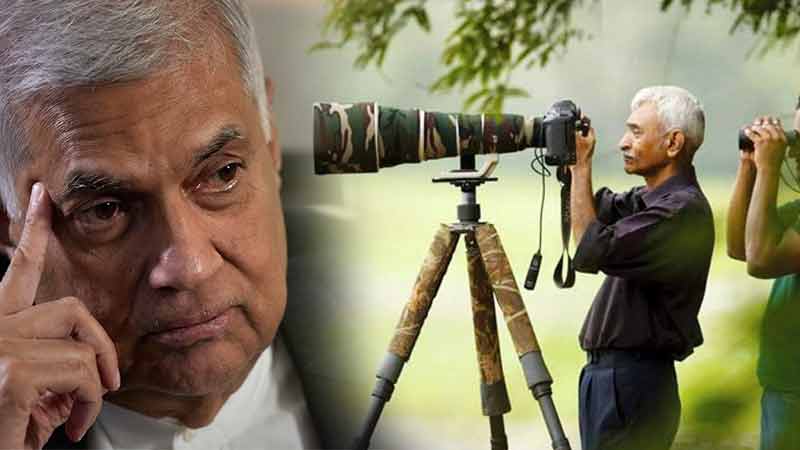Environmentalists are critical of President Ranil Wickremesinghe’s decision last week to ban the entry of private vehicles to national parks and allow only registered tour operators and safari jeeps into these protected areas. They claim it is a violation of fundamental rights.
‘If private vehicles are to be banned, there should be a blanket ban on all private vehicles from entering the park’, explains environmental lawyer Jagath Gunewardene. ‘In this case private commercial vehicles like safari jeeps will be allowed in. It is a blatant violation of article 12 (1) of the constitution which states that everyone is equal before the law’.
Gunewardene says it will allow the unjust enrichment of some, at the expense of others. ‘It may be their livelihood, but exemptions can’t be made for only a few. It’s adding insult to injury’.
A source said the decision about the ban was taken unilaterally by Wickremesinghe without consulting wildlife officials.
For an equitable outcome of some measure, Gunewardene proposes that the Department of Wildlife Conservation provides a transport service for visitors to the park. ‘The DWC can lay on buses for visitors to enter the park’. He sees it as a way to be kinder to the environment because there will be less traffic and congestion and a reduction in emissions. It will also cost visitors less in park entry fees.
Wickremesinghe’s decision to ban private vehicles is viewed by many as something which has not been thought about but a knee jerk reaction to an incursion into Yala National Park last week by more than 30 vehicles. Their shenanigans inside the park which included off road driving, flying a drone and being in possession of alcohol has led to an investigation by the DWC and an inquiry by the Tissamaharama magistrate into the breach of park rules.
In addition to the rights violation which Gunewardene points out, the ban will also deprive the state of revenue from parks and right now every little bit counts to beat the economic slump the country is going through.
A nagging home truth highlighting the Yala debacle is the lack of wildlife guides in the DWC. It has hamstrung its operations, especially when visitor numbers are high, because it can’t assign a guide to every vehicle entering the park. ‘With good park management, every vehicle entering the park will have a guide’, says Sajeewa Chamikara, an environmental activist. ‘This is how it happens in other countries’.
The source explained how around 2017, the DWC took in approximately 347 volunteers after the Salaries and Cadres Commission refused to give it the greenlight to recruit permanent staff into its cadre. The obvious reason for the refusal could have been affordability. Sporadic attempts since then to absorb them into the DWC’s permanent cadre have failed and these volunteers continue to be in limbo about their employment status. These volunteers have been deployed as park guides and at the Elephant Transit Home in Udawalawe.
‘The DWC needs six times more people than what it has now’, says Gunewardene. ‘This will ensure there are more beat officers and by extension, there will be better enforcement. The law has to be applied equally to everyone’.





